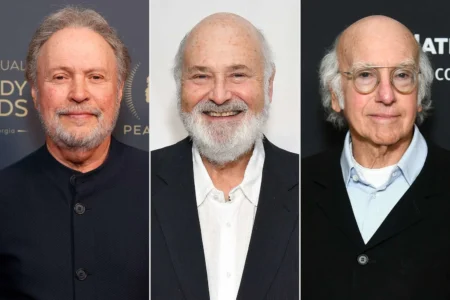Disney has turned down a proposed Star Wars spin-off featuring Adam Driver as Ben Solo, also known as Kylo Ren, saying the concept did not fit the established storyline. The decision comes despite interest from Driver and director Steven Soderbergh, who had hoped to create a character-driven, smaller-scale Star Wars film.
In a recent interview, Driver revealed that the project, tentatively titled The Hunt for Ben Solo, was presented to Lucasfilm and Disney executives. While Lucasfilm reportedly appreciated the concept, Disney leaders Bob Iger and Alan Bergman ultimately rejected it, citing concerns over resurrecting Ben Solo.
“We presented the script to Lucasfilm,” Driver said. “They loved the idea. They totally understood our angle. We took it to Disney, and they said no. They didn’t see how Ben Solo was alive. And that was that.”
Driver explained that the filmmakers aimed to create a story in the same spirit as classic Star Wars films, focusing on character depth rather than large-scale spectacle. He described Soderbergh as a director who “lives his code, lives his ethics, doesn’t compromise,” highlighting the appeal of collaboration.
However, analysts say the real issue is not Soderbergh’s direction but the narrative logic of bringing back Kylo Ren. The character died at the conclusion of The Rise of Skywalker, and many fans remain critical of the final installment of the Skywalker saga. Reviving Ben Solo risks undermining the story’s closure and alienating audiences who accepted his ending.
Unlike cultural icons such as Spider-Man or Wonder Woman, Kylo Ren and Rey do not have decades-long histories that allow endless reinterpretation. They are recent additions to the franchise with half-finished arcs, making their revival more problematic.
The decision to reject the project reflects Disney’s focus on maintaining narrative consistency within the Star Wars canon. While rumors suggest a new film exploring Rey’s efforts to rebuild the Jedi Order is still in development, the company appears cautious about revisiting deceased characters.
Fans have long debated the merits of posthumous sequels in Hollywood. Driver’s film proposal, though creatively promising, would have required an explanation for Ben Solo’s return that satisfied devoted fans and preserved story integrity—a challenging task given the controversial reception of The Rise of Skywalker.
Industry observers note that Disney’s choice aligns with broader franchise strategy, emphasizing new stories and characters while avoiding convoluted continuations of completed arcs. This approach helps protect the legacy of the original trilogy and prevents fatigue among audiences.
Driver’s enthusiasm for the project underscores the tension between actor and studio ambitions, and the challenges of balancing creative ideas with established franchise rules. Ultimately, Disney opted to maintain the finality of Ben Solo’s story, preserving the integrity of the Skywalker saga.
For Star Wars enthusiasts, the rejection of a Ben Solo-centric film may be disappointing for some, but it also avoids further complicating a franchise already criticized for inconsistent storytelling in its latest entries. Disney’s decision signals a commitment to thoughtful, canon-respecting content rather than pursuing every potential spin-off.







